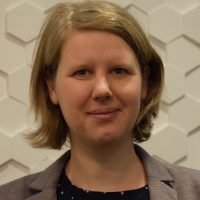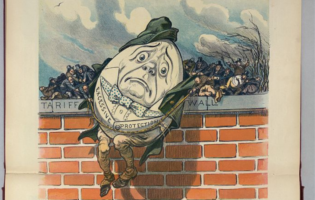Commerce, Climate Change, and China: German-American Challenges in 2009

Kirsten Verclas
ORISE Science and Technology Policy Fellow
Kirsten Verclas is an ORISE Science and Technology Policy Fellow. Previously, she was a Program Manager in the International Department of the National Association of Regulatory Utility Commissioners (NARUC) working on regulatory partnerships in Africa under a NARUC-U.S. Agency for International Development (USAID) Cooperative Agreement. Before coming to NARUC, Ms. Verclas was a Senior Program Manager at the American Institute for Contemporary German Studies (AICGS) at Johns Hopkins University, where she managed the Institute’s grant projects. She initially joined AICGS as Executive Assistant in 2003 and started working in the Institute’s Research Program in 2008. Ms. Verclas has written extensively on energy and climate as well as security policy in the transatlantic context. She holds a BA in International Relations with a Minor in Economics from Franklin and Marshall College and an MA in International Relations with a concentration in Security Studies from The Elliott School at The George Washington University. She also earned an MS in Energy Policy and Climate from Johns Hopkins University in August 2013.
She is a 2017-2018 participant in AICGS’ project “A German-American Dialogue of the Next Generation: Global Responsibility, Joint Engagement,” sponsored by the Transatlantik-Programm der Bundesrepublik Deutschland aus Mitteln des European Recovery Program (ERP) des Bundesministeriums für Wirtschaft und Energie (BMWi).
Issue Brief 23
In light of the recent economic downturn, the U.S. presidential candidates and the American public are focusing increasingly on economic issues in the 2008 campaign. While economic policies are often viewed through a domestic policy prism, in today’s globalized and interconnected world, domestic economic decisions influence the world economy as well…









